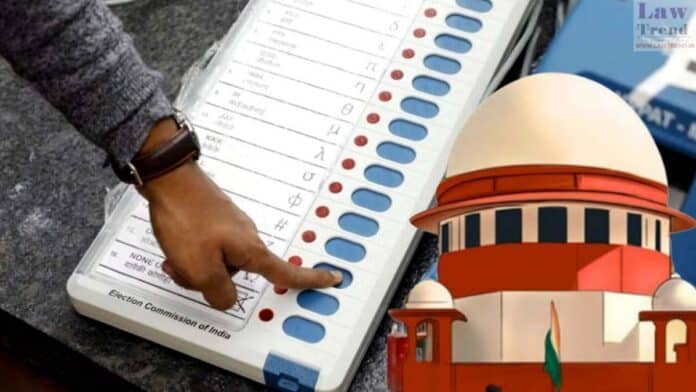The Supreme Court on Tuesday called for the Election Commission of India’s (ECI) response concerning pleas for the verification of electronic voting machines’ (EVMs) burnt memory and symbol loading units. This request aligns with the court’s previous judgment on the matter.
Chief Justice Sanjiv Khanna and Justice Dipankar Datta, presiding over the special bench, directed the ECI not to erase or reload any data during the verification process. The bench has given the ECI a 15-day window to file its response detailing the procedures it has adopted and scheduled the next hearing for the week starting March 3.
The bench’s directive came as part of a response to petitions from the NGO Association for Democratic Reforms (ADR) and a defeated candidate, Sarv Mitter. Senior advocate Devadatt Kamat represented the petitioners who are pushing for a systematic check of potentially compromised EVM components.
Last year on April 26, the Supreme Court rejected demands to revert to paper ballots, affirming the security of EVMs against booth capturing and bogus voting. However, it allowed unsuccessful candidates, who finished second or third, the option to request verification of micro-controller chips within 5% of EVMs per assembly constituency, provided they paid a fee.
The court also mandated that from May 1 of the previous year, symbol loading units should be securely sealed and stored alongside EVMs in a strongroom for at least 45 days post-election results announcement.
ADR’s latest plea criticizes the ECI’s standard operating procedure for EVM verification as not aligning with the 2024 judgment concerning the EVM-VVPAT case. On this point, Chief Justice Khanna questioned the ECI’s rationale behind data erasure and reloading post-election, emphasizing the need for simple verification by an engineer from the manufacturing company without altering the data.
During the hearing, the bench also addressed concerns over the high costs associated with EVM verification, noting the current charge of Rs 40,000 per machine as excessive and urging a reduction.
The ECI’s counsel assured the court that the commission would clarify its procedures through a short affidavit and confirmed that no data modification or correction would occur during the verification process.
Advocate Prashant Bhushan, representing ADR, argued that the existing procedures for EVM verification fell short of the court’s standards, advocating for a thorough examination of both software and hardware to detect any possible manipulation.




